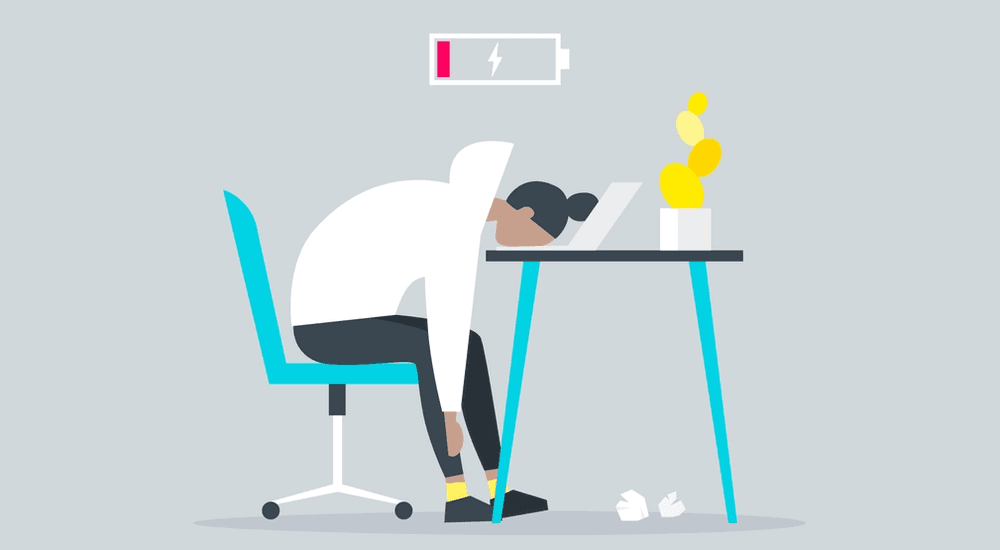- January 25, 2022
- Posted by: Hunt Partners
- Category: Leadership Development

In the era of overwork, sleep is precious. What if your company pushed you to work less and snooze more? It may not be a dream.
When Jason Fried picks up the phone at 1000 each morning, the very first thing he says is, “I just woke up.”
Fried, co-founder and CEO of US software company Basecamp, says prioritising sleep – and ensuring he’s regularly getting enough hours of quality rest – is a major part of what makes him a good leader. It’s a mindset that runs contrary to many other leaders, who have a tendency, says Fried, to use sleeplessness as “a badge of honour”.
“Especially in the tech industry, you hear people brag, ‘I only got three hours of sleep’ or ‘I pulled an all-nighter’. It’s the whole ‘sleep when I’m dead, put in the hours’ thing,” he says. “It’s kind of gross – this idea that you ‘need’ to work so much, and that’s the thing that’ll get you ahead – putting in ridiculous hours. No one has the stamina or mental capacity to do 14 hours of work.”
Instead, Fried believes in leading by sleeping more. His philosophy for himself and his Basecamp employees is “eight-eight-eight”: eight hours of work and sleep each, and “eight hours of life in between”, he says. “What ends up happening for most people is work takes the most; life is the stuff you try to fit in the gaps and sleep is what’s left over.”
This type of ‘sleep leadership’ is twofold, explains Tori Crain, assistant professor of psychology at Portland State University, US.
“One, it’s about supporting workers in their sleep. That’s things like a supervisor showing care and concern and checking in,” she says. “And then there’s this other component that’s more around understanding and communicating the importance of sleep to doing a good job and performing in the workplace. That can mean leading in a way that helps employees get more sleep, and role modelling for employees how leaders themselves are sleeping and balancing work and sleep, and how they’re thinking about sleep in relation to their work.”
Since the beginning of the pandemic, companies are increasingly recognising the importance of employee wellness – especially as workers themselves demand it. Programmes such as access to better flexible working policies, increased leave and mental-health apps are among the common approaches. But less traditionally, modelling and encouraging good sleep behaviour is also emerging as another approach to support employees from burning out.
And though the rules of a more traditional corporate workplace may dictate that it’s inappropriate to talk about what’s happening in your bedroom, Swiss sleep neuroscientist Els van der Helm says a “younger generation of workers has changed this taboo dramatically. They want to talk about all these personal topics at work, because for them, work and personal life blend much more together”.
‘When you’re tired, you suck’
A light sleep on the job isn’t wholesale new, of course; in countries such as Spain and Italy, a mid-day break for lunch and a snooze has long been baked into company culture. Elsewhere in Europe, organisations including the National Trust, are beginning to embrace these “Mediterranean hours”.
There are examples in the US, too; online retailer Zappos offers employees access to massage chairs, and staff were often encouraged by late CEO Tony Hsieh to take 20-minute daily naps. Nap rooms or pods are also available at companies including Google and Cisco.
But while a connection between napping and working has been around for a while – a 2008 survey showed more than 30% of American companies allow or encourage napping during the day, and 15% or more provide a place to do so – the concept of sleep leadership takes things a step further, prioritising policies that care for employees’ sleep hygiene outside working hours.
Huffington Post founder Arianna Huffington has long been a proponent, even publishing a book (The Sleep Revolution) on the topic. Former Google executive Eric Schmidt has also written about the importance of sleep to employees and leaders alike. At health insurance behemoth Aetna, employees who can prove (using Fitbit data or other means) that they’ve had a good night’s sleep can receive a per-night monetary incentive.
They often start with exercise and nutrition – I think you should actually start with sleep because it’s so fundamental – Els van der Helm
For Basecamp CEO Fried, sleep leadership is just practical.
“When you’re tired, you suck,” he says. “You don’t think clearly or lead others well. If you run a team or are in charge of other people and you’re sleep deprived, you’re making their lives a lot harder. You’re not pleasant to be around, you’re not all there. You’re short and terse and all the bad things that come from being exhausted.”
Research chimes with this, according to van der Helm: studies have shown sleep-deprived leaders tend to “have less followership”, she says. “They’re less inspiring. The team of a leader who’s had a bad night is much less engaged at work.”
On the flip side, employees who’ve had too little sleep aren’t performing at their best. “They’re interpreting workplace stressors more strongly than if they were sleeping well,” adds Portland State University’s Crain. “They’re more likely to be reactive to stressors in the work environment, and have a harder time regulating emotions.”
There’s a “truly reciprocal relationship”, continues Crain, between sleep and work. “If people aren’t performing at work, it causes stress, and stress impacts sleep. Not sleeping well impacts work performance,” she says.
Lousy sleep, lousy work
But while the problem is balanced on either side – lousy sleep translates to lousy work, and vice versa – the solution, says van der Helm, almost always lies in the workplace.
“It can be incredibly stressful to lie awake at night, knowing you have something to do the next day and worrying about it,” she says. “If the topic of sleep is taboo at work, and no one ever talks about that, but work is what’s keeping you from getting good sleep, there needs to be a significant cultural shift.”
For Basecamp specifically, this has meant bringing conversations about sleep to the forefront, both when communicating internally as well as with employees. “We constantly talk about it internally,” he says. “We share information about how to get better sleep and share how important it is. And that it has to start, I think, not with sleep but with work. Eight hours a day is enough.”
To make a firm 40-hour work week possible, meetings are limited and carefully scheduled to allow large blocks of uninterrupted productive hours during the day, and employees sending emails with late-night timestamps may receive a “gentle reminder” that they aren’t expected to work after hours.
Fried acknowledges, however, focusing on such a private activity as sleep can cross the line into paternalism. A few years ago, his company partnered with a start-up that used a device under a mattress to track movement and heart rate and collect data about the quality of people’s sleep. “We brought in the guy to talk about the importance of sleep, and bought everybody one of these things if they wanted it,” he says. “Some people became really religious about it and became better sleepers, which is great. But for me, it started to feel kind of weird [even though] we weren’t actually receiving any of the data.”
Starting with sleep
As conversations around employee wellness ramp up across many companies – influenced both by the pandemic and a workforce increasingly dominated by millennials and Gen-Z – healthy sleep is finding a platform, too.
“We’re seeing almost, like, marketing campaigns within organisations to create awareness around the topic of wellbeing,” says van der Helm. “They often start with exercise and nutrition – I think you should actually start with sleep because it’s so fundamental.”
What ends up happening for most people is work takes the most; life is the stuff you try to fit in the gaps and sleep is what’s left over – Jason Fried
While more companies follow that lead and remove the taboo from discussions about sleep, it’s only the first step in sleep leadership, van der Helm emphasises. “Often, the modelling is lacking,” she says. “Maybe there’s support for employees, but the top leadership isn’t necessarily changing anything and the culture isn’t changed at all. Then people can struggle.”
Ultimately, sleep leadership is about both talking, and (sleep)walking that talk.
“Really, there’s power in using peers and leadership to address these problems,” van der Helm says. “It can be very freeing to discuss these things. For whatever reason, once we get started, we all find it easy to admit what is keeping us up at night. The impact of sleep deprivation at work is really big, so I’m really happy there’s a push for these topics to be addressed at work. In the end, if you want people to sleep better, work can be the cause and the solution.”
Source: BBC
